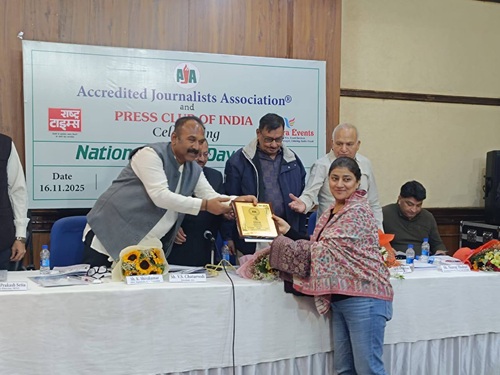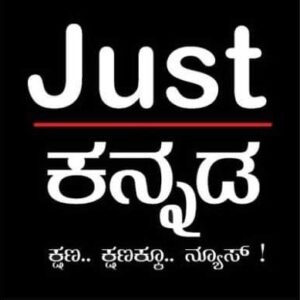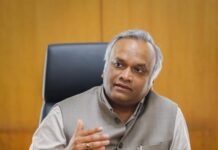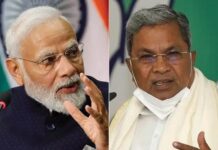ನವ ದೆಹಲಿ, ನ.೧೬, ೨೦೨೫: ಪ್ರೆಸ್ ಕ್ಲಬ್ ಆಫ್ ಇಂಡಿಯಾ (PCI) ಹಾಗೂ ಮಾನ್ಯತೆ ಪಡೆದ ಪತ್ರಕರ್ತರ ಸಂಘದ ವತಿಯಿಂದ ನಡೆದ ರಾಷ್ಟ್ರೀಯ ಪತ್ರಿಕಾ ದಿನಾಚರಣೆ ಕಾರ್ಯಕ್ರಮವನ್ನು ಕರ್ನಾಟಕ ವಿಧಾನ ಪರಿಷತ್ ಸದಸ್ಯ ಹಾಗೂ ಹಿರಿಯ ಪತ್ರಕರ್ತ ಡಾ.ಕೆ.ಶಿವಕುಮಾರ್ ಉದ್ಘಾಟಿಸಿ, “ಅಂಬೇಡ್ಕರ್ ಮತ್ತು ಪತ್ರಿಕೋದ್ಯಮ” ಎಂಬ ವಿಷಯ ಕುರಿತು ಮಾತನಾಡಿದರು.
ಸಾಮಾಜಿಕ ಸುಧಾರಣೆಯಲ್ಲಿ ಪತ್ರಿಕೋದ್ಯಮವು ಪ್ರಬಲ ಅಸ್ತ್ರ ಎಂದು ಅರಿತಿದ್ದ ಡಾ.ಬಿ.ಆರ್.ಅಂಬೇಡ್ಕರ್ ಅವರು 126 ವರ್ಷ ಗಳ ಹಿಂದೆ ಪತ್ರಿಕೆಗಳನ್ನು ಪ್ರಾರಂಭಿಸಿದ್ದರು. ರಾಷ್ಟ್ರೀಯ ನಾಯಕರಾದ ಅವರು, ನ್ಯಾಯಶಾಸ್ತ್ರಜ್ಞ ಮತ್ತು ಸಂವಿಧಾನದ ಕರ್ತೃ ಮಾತ್ರವಲ್ಲದೆ, ದೃಢನಿಶ್ಚಯವುಳ್ಳ ಪತ್ರಕರ್ತರೂ ಆಗಿದ್ದರು ಎಂಬುದು ಬಹಳಷ್ಟು ಜನರಿಗೆ ತಿಳಿದಿಲ್ಲ ಎಂದು ಶಿವಕುಮಾರ್ ಮಾಹಿತಿ ನೀಡಿದರು.
ಮುಖ್ಯವಾಹಿನಿಯ ಪತ್ರಿಕೆಗಳು ಶೋಷಿತ ಸಮುದಾಯಗಳ ಹೋರಾಟಗಳನ್ನು ತಪ್ಪಾಗಿ ಬಿಂಬಿಸಿದ್ದಲ್ಲದೆ, ಸಂಪೂರ್ಣವಾಗಿ ನಿರ್ಲಕ್ಷಿಸಿದ ಸಮಯದಲ್ಲಿ ಅನ್ಯಾಯದ ವಿರುದ್ಧ ಹೋರಾಡಲು ಹಾಗೂ ಸಾಮಾಜಿಕವಾಗಿ ಜಾಗೃತಿ ಮೂಡಿಸಲು ಅಂಬೇಡ್ಕರ್ ತಮ್ಮದೇ ಆದ ಮೂಕನಾಯಕ, ಬಹಿಷ್ಕೃತ ಭಾರತ, ಜನತಾ ಹಾಗೂ ಪ್ರಬುದ್ಧ ಭಾರತ ಎಂಬ ಪತ್ರಿಕಗಳನ್ನು ಪ್ರಾರಂಭಿಸಿ ಛತ್ರಪತಿ ಶಾಹು ಮಹಾರಾಜರ ಪ್ರೋತ್ಸಾಹದೊಂದಿಗೆ ಸುಮಾರು ಒಂದು ದಶಕ ಕಾಲ ಸಂಪಾದಕರಾಗಿ ಸೇವೆ ಸಲ್ಲಿಸಿದರು ಎಂಬ ಅಂಶವನ್ನು ತಿಳಿಸಿದರು.

ಸಾಮಾಜಿಕ ನ್ಯಾಯ, ಅಸ್ಪೃಶ್ಯತೆ, ದಲಿತರ ಹಕ್ಕುಗಳ ಬಗ್ಗೆ ದಣಿವರಿಯದೆ ಬರೆದ ಅವರು, ಆ ಸಮಯದಲ್ಲಿ ಕ್ರಾಂತಿಕಾರಿ ನಿಲುವಾಗಿದ್ದ ಅಂತರ್ಜಾತಿ ವಿವಾಹವನ್ನು ಕೂಡ ಬೆಂಬಲಿಸಿದರು. ಅವರು ಚಾವ್ಡಾರ್ ಕೆರೆ ಸತ್ಯಾಗ್ರಹದಂತಹ ನಿರ್ಣಾಯಕ ಚಳುವಳಿಗಳನ್ನು ವರದಿ ಮಾಡುವ ಮುಖೇನ ಜನರಿಗೆ ಧ್ವನಿ ನೀಡಿದರು.
ಬಾಬಾ ಸಾಹೇಬರು ಅಂದು ಎದುರಿಸಿದ ಸಮಸ್ಯೆಗಳು ಇಂದಿಗೂ ಚಾಲ್ತಿಯಲ್ಲಿರುವ ಶೋಚನೀಯ. ದೇಶಾದ್ಯಂತ ಅನೇಕ ಸುದ್ದಿ ಕೊಠಡಿಗಳಲ್ಲಿ ಸರ್ವರ್ಣಿಕರ ಪ್ರಾಬಲ್ಯ ಇನ್ನೂ ಮುಂದುವರೆದಿದೆ. ಎಸ್.ಸಿ, ಎಸ್.ಟಿ ಮತ್ತು ಒಬಿಸಿ ಸಮುದಾಯಗಳಿಗೆ ಪ್ರಾತಿನಿಧ್ಯ ಕಡಿಮೆಯಾಗಿದೆ ಎಂದು ಡಾ.ಶಿವಕುಮಾರ್ ಅಭಿಪ್ರಾಯಪಟ್ಟರು.
ಕೆಲವು ಮಾಧ್ಯಮಗಳು ಇಂದು ಅನೇಕ ಪ್ರಬಲ ಸಂಸ್ಥೆಗಳು, ರಾಜಕೀಯ ಪಕ್ಷಗಳು ಮತ್ತು ವ್ಯಕ್ತಿಗಳ ಪರವಾಗಿ ಕೆಲಸ ಮಾಡುತ್ತಿವೆ. ನ್ಯಾಯವನ್ನು ಎತ್ತಿಹಿಡಿಯಬೇಕಾದ ಮಾಧ್ಯಮಗಳು ಹೀಗೆ ರಾಜಿ ಮಾಡಿಕೊಳ್ಳುತ್ತಿರುವುದು ಅಂತ್ಯಂತ ಕಳವಳಕಾರಿ.
ರೈಲು ಪ್ರಯಾಣದ ದರದಲ್ಲಿ ಪತ್ರಕರ್ತರಿಗೆ ಇದ್ದ ಶೇ.50 ರಷ್ಟು ರಿಯಾಯಿತಿಯನ್ನು ಕೇಂದ್ರ ಸರ್ಕಾರವು ಹಿಂಪಡೆದಿರುವುದನ್ನು ನಾನು ಖಂಡಿಸುತ್ತೇನೆ. ಕರ್ನಾಟಕ ಸರ್ಕಾರವು ಜಾರಿ ಮಾಡಿರುವ ಪತ್ರಕರ್ತರಿಗೆ ಆರೋಗ್ಯ ವಿಮೆ, ಹೊಸ ಜಾಹೀರಾತು ನೀತಿಗಳು ಮತ್ತು ಆರ್ಥಿಕ ಚೈತನ್ಯ ತುಂಬುವ ಯೋಜನೆಗಳು ಸೇರಿದಂತೆ ಕಲ್ಯಾಣ ಕ್ರಮಗಳನ್ನು ರಾಷ್ಟ್ರೀಯ ಮಟ್ಟದಲ್ಲಿಯೂ ಜಾರಿಗೆ ತರಬೇಕೆಂದು ನಾನು ಡಾ. ಶಿವಕುಮಾರ್ ಒತ್ತಾಯಿಸಿದರು.
ಈ ಸಂದರ್ಭದಲ್ಲಿ ಹಿರಿಯ ಪತ್ರಕರ್ತರಾದ ವಿ.ಎಸ್.ಚತುರ್ವೇದಿ, ಗೌತಮ್, ಸುನೀಲ್ ಪರಾಶರ್ ಸೇರಿದಂತೆ ಇತರರು ಉಪಸ್ಥಿತರಿದ್ದರು.
KEY WORDS: National Press Day, welfare of journalists, implemented at the Centre. senior journalist Dr. K. Shivakumar

summary:
National Press Day: The scheme implemented in the Karnataka state for the welfare of journalists should also be implemented at the Centre.
Today, I had the privilege of being invited as a guest by the press Club of India (PCI) and the Accredited Journalists Association as part of the National Press Day celebrations in New Delhi. It is a matter of great honour that I spoke on the topic Ambedkar and journalismand I am deeply thankful to them for this opportunity.
During my address, I spoke on the powerful historical connection between journalism and social reform, especially through the life and work of Dr B R Ambedkar that was started 126 years ago.

I also throw light on how many are unaware that Ambedkar was not only a national leader, jurist and constitution maker, but also a journalist by conviction and practice.
He knew that journalism was a powerful tool, especially at a time when mainstream newspapers misrepresented or completely ignored the struggles of marginalised communities.
To fight this injustice, Ambedkar started his own newspapers each a torch of social awakening through newspapers Mooknayak, Bahishkrit Bharat, Janata
Prabuddha Bharat, With the patronage of chhatrapati Shahu Maharaj, Ambedkar served as the editor of these publications for nearly a decade.
Through them, he tirelessly wrote about social justice, untouchability, Dalit rights, and even supported inter-caste marriage, which was a revolutionary stand at that time. He covered crucial movements such as the Chavdar Tank Satyagraha, giving voice to people who were otherwise invisible in mainstream media.
But after the passing of Shahu Maharaj, and due to lack of patronage, these publications struggled. Yet their legacy remains timeless.
Sadly, the issues Ambedkar confronted then continue even today. In many newsrooms across the country, upper-caste dominance still persists. Diversity is still lacking, and the representation of SC, ST, and OBC communities remains minimal. It is high time that our media institutions reflect the true social fabric of India.
Representation is not a favour; it is a necessity for a fair and democratic media ecosystem.
I also raised concerns about the current state of the media. Many powerful institutions today seem to be running behind political parties and individuals, compromising the independence that journalism must uphold.
I strongly condemned the Central Government’s withdrawal of 50% fare in reservation for accredited journalists. I urged that the welfare measures implemented in Karnatak including health insurance for journalists, new advertisement policies, and other supportive schemes must also be implemented at the national level.

Our freedom struggle owes much to the courageous role of journalists who informed, inspired and mobilised the masses. This legacy must continue with the same integrity and fearlessness.
A special felicitation ceremony was also held for senior journalists on this occasion, acknowledging their decades of service and dedication to the profession.
It was an honour for me, as a senior journalist and the member of legislative council, Karnataka, to share these reflections on such a significant day. Veteran journalists V S Chaturvedi, Gautham, Sunil Parashar and others were present.








